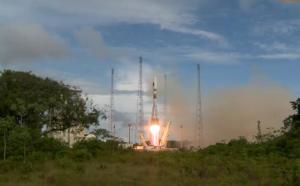QinetiQ has announced a major breakthrough in developing a robust navigation receiver which will support the new global navigation satellite system (GNSS) Galileo, and particularly the secured Public Regulated Service (PRS) which could become of great use to the shipping and ports sector.
QinetiQ’s new high-performance, next-generation GNSS receiver is multi‑constellation and multi‑frequency, and is designed to process encrypted signals from the Galileo PRS service as well as open services such as GPS. Read more…

